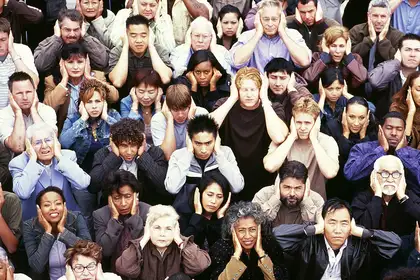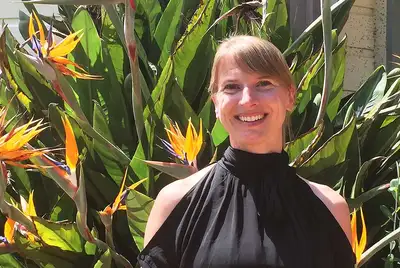
Listening to views that clash with your own is critical to a healthy democracy but hard to do, says Dr Emily Beausoleil.
How do you encourage people to listen to views that differ or clash with their own, especially around issues like inequality and poverty that can be easy to ignore and uncomfortable to face?
This is crucial to a strong democracy and yet perhaps the hardest thing we’re asked to do as citizens, says Massey University politics researcher Dr Emily Beausoleil.
She is working with social policy agencies and expert listeners to explore new ways for marginalised voices and views to be heard. Her three-year Marsden-funded project starts at a time when “listening is in scarce supply,” she says.
Dr Beausoleil’s research investigates “how people come to listen” in regard to socio-economic inequality – a timely topic for election year with poverty and homelessness as persistent themes. “New Zealand has the fastest growing gap between the rich and poor of any OECD [Organisation for Economic Cooperation and Development] country,” she says. “Yet that fact – and clear links of high levels of inequality to health issues, criminality, declining social trust, and economic instability – hasn’t been enough to move kiwis to push for meaningful change. When information doesn’t convince us to listen, what else can make the difference?”
Central to her study is the idea that issues of poverty and socio-economic inequality connect us all as part of our collective responsibility as citizens, whether or not we experience or witness their negative effects directly.
The Canadian-born, Wellington-based academic from the School of People, Environment and Planning says the idea for her study was sparked by her own sense of wanting to better listen and respond to experiences and claims that are uncomfortable to hear for those in positions of privilege.
“When inattention and misunderstanding are all too easy for those in positions of relative privilege, what enables those rare encounters that disrupt our usual defences and denials?” she asks. “How can we encourage those who benefit from not listening, who should be listening, to listen, to turn their gaze?”
Poverty’s causes are complex and hard to communicate
In the first part of her study, she has been talking to government and civic organisations at the forefront of public policy, awareness-raising and debate who rely on conventional methods of engagement and information sharing via websites, lobby groups, forums, online campaigns and letter-writing.
She asked them what strategies they have been using so far, what challenges and obstacles they have faced or overcome, what they have learned, and who they really want to reach.
“Some of the challenges when I talked to organisations were the fact that this issue is really very, very complicated. You’re talking about systems, you’re talking about the economy, you’re talking about how one small butterfly’s flap of a wing on one side of the economy affects others trying to catch a bus to their minimum wage job.”
“The sheer complexity of it – even for those who care about it – makes it really difficult to understand and to know how we can affect the issue,” she says.

Dr Emily Beausoleil wants to find out how to encourage people to listen better in the interests of democracy.
Changing the conversation – do the rich care?
The big challenge for agencies working for change or to inform is that “they want to speak to specific people they can never quite reach. So they often end up preaching to the converted. A lot of agencies want to reach the wealthy, those who don’t engage normally with these issues.”
However, many wealthy are insulated, she says. “They exist in worlds that are largely self-affirming. You feel like it’s the world everyone else lives in and you’re not aware how cocooned you are.”
“A lot of people who work online say you can’t actually change someone’s mind online. Social media, blogs, Twitter. You can have a sound bite – but one that shakes and stays with us is hard to achieve.”
Inequality implicates all of us, she says. “It’s not just a question of donating to buy a raincoat for a refugee, but ‘how is my position in the world related to this little boy who needs a refuge and a raincoat?’”
“When we talk about making the world better, when we talk about those who are poor or disenfranchised in some way we focus so much on them, and little on the systems that put them there and on the people who are largely invisible because they are not scrutinised because of their privilege and power.”
Psychology and neuroscience
In the next phase of her study, she is turning to professionals and experts in receptivity – who she refers to as "master listeners” – in a bid to generate creative new forms of democratic engagement. By interviewing and observing experts from therapy, education, performance and conflict mediation sectors, she wants to find out how they “cultivate and maintain receptivity even as they engage us in challenging conversations.”
She wants to learn from their more highly developed listening skills and tools for communicating in subtle, nuanced ways, and see how these could be applied “in a political context where listening is required and largely absent among the general public.”
She is also drawing on new findings in psychology and neuroscience for a deeper understanding of the complexities involved in communication and listening, and how that might shape the way people respond to news about poverty and inequality. The question ‘how people come to listen’ is new for political theorists, she says, and is shaped in large part by cognitive bias (our subjective assumptions) and environmental influences among other factors.
“Our perceptions and judgements of others can hinge on cleanliness, temperature, or the smell of a room, whether we have recently eaten, or the positioning of our mouths or hands as we listen,” she says.
At the end of the project she will bring practitioners from the two sectors at the centre of her study together so they can design more effective ways to engage New Zealand communities. She hopes this will help to foster greater conversation about and response to socio-economic disparity as an issue affecting the whole of society.